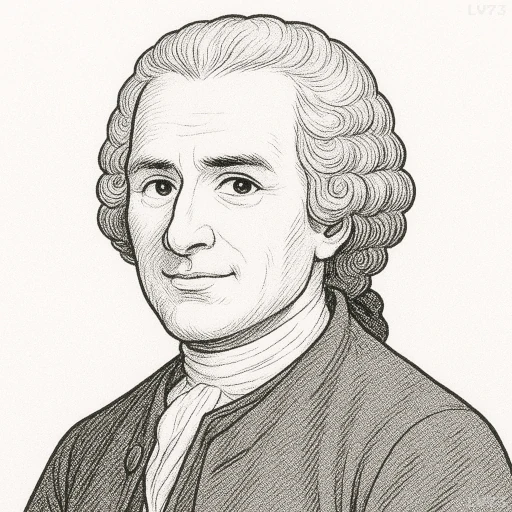“We should not teach children the sciences; but give them a taste for them.”

- June 28, 1712 – July 2, 1778
- Born in Geneva
- Philosopher, political philosopher, writer, composer
table of contents
Quote
“We should not teach children the sciences; but give them a taste for them.”
Explanation
In this quote, Jean-Jacques Rousseau critiques traditional approaches to education, particularly in relation to teaching children formal scientific knowledge. He argues that rather than directly instructing children in the sciences, which can be dry or difficult to grasp, we should foster a curiosity and interest in these subjects. By cultivating a taste for science, Rousseau believes that children will develop a love for learning and a deeper engagement with the subject, making them more likely to pursue knowledge in a meaningful and sustained way as they grow older. Rousseau emphasizes that education should not merely be about transmitting facts, but about inspiring children to explore and discover on their own.
Historically, Rousseau’s approach to education contrasts with the rigid, memorization-based methods that were common in his time. In Emile, Rousseau advocates for an educational system that aligns more closely with the natural development of children, allowing them to learn through experience, observation, and self-discovery rather than through forced instruction. He believed that children should be encouraged to explore the world around them, with guidance and support from educators, but not pressured into absorbing abstract knowledge too early. By introducing children to the wonders of science through curiosity rather than formal teaching, Rousseau thought they would naturally develop an interest that could be nurtured later in life.
In modern times, Rousseau’s ideas about fostering interest rather than rigidly teaching content are still relevant in educational philosophy. Many contemporary approaches to learning, such as inquiry-based learning or project-based learning, focus on encouraging curiosity and critical thinking rather than simply imparting information. This approach fosters a growth mindset where children are not just recipients of knowledge but active participants in the learning process. Rousseau’s perspective reminds us that a genuine love of learning—especially in areas like science—emerges most effectively when it is driven by personal interest and the excitement of discovery, rather than by rote memorization or forced instruction.
Would you like to share your impressions or related stories about this quote in the comments section?
